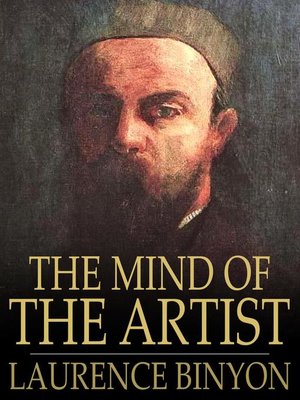
Sign up to save your library
With an OverDrive account, you can save your favorite libraries for at-a-glance information about availability. Find out more about OverDrive accounts.
Find this title in Libby, the library reading app by OverDrive.



Search for a digital library with this title
Title found at these libraries:
| Library Name | Distance |
|---|---|
| Loading... |
The Mind of the Artist speaks for itself, and really requires no word of introduction. These opinions as a whole have a harmony and consistency, and announce clearly that the directing impulse must be a desire for expression, that art is a language, and that the thing to be said is of more importance than the manner of saying it. This desire for expression is the driving-force of the artist; it informs, controls, and animates his method of working; it governs the hand and eye. That figures should give the impression of life and spontaneity, that the sun should shine, trees move in the wind, and nature be felt and represented as a living thing—this is the firm ground in art; and in those who have this feeling every effort will, consciously or unconsciously, lead towards its realisation. It should be the starting-point of the student. It does not absolve him from the need of taking the utmost pains, from making the most searching study of his model; rather it impels him, in the examination of whatever he feels called on to represent, to look for the vital and necessary things: and the artist will carry his work to the utmost degree of completion possible to him, in the desire to get at the heart of his theme.
"Truth to nature," like a wide mantle, shelters us all, and covers not only the outward aspect of things, but their inner meanings and the emotions felt through them, differently by each individual. And the inevitable differences of point of view, which one encounters in this book, are but small matters compared with the agreement one finds on essential things; I may instance particularly the stress laid on the observation of nature. Whether the artist chooses to depict the present, the past, or to express an abstract ideal, he must, if his work is to live, found it on his own experience of nature. But he must at every step also refer to the past. He must find the road that the great ones have made, remembering that the problems they solved were the same that he has before him, and that now, no less than in Dürer's time, "art is hidden in nature: it is for the artist to drag her forth."







